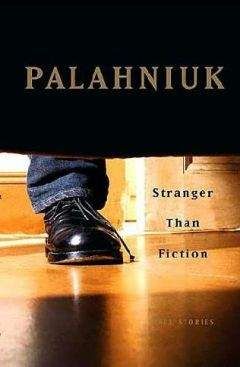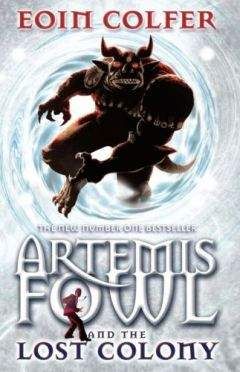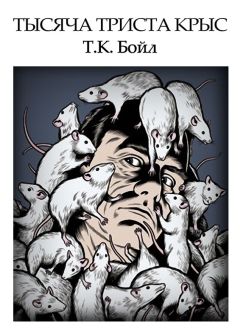Deerskin - Robin McKinley
But as the long fur came out in handsful the new, silky, gleaming coat beneath it was revealed ... as close and short and fine as any other fleethound's. The scar, still red, and crooked from too few stitches, glared angrily through; but Ash was recovering herself with her health, and when she stood to attention, her head high and her ears pricked, Lissar thought her as beautiful as any dog ever whelped. And, what pleased Lissar even more, as she began, hesitantly, in tiny spurts, to run and leap again, she ran sound on all four legs, and stretched and twisted and bounded like her old self.
They began sleeping outdoors as soon as the ground was dry enough not to soak through Lissar's leather cloak and a blanket om top-Ash must not take a chill. Lissar watched Ash's progress hungrily, still fearing some unknown complication, still in shock from having believed she might lose her, still not believing her luck and Ash's determination to stay alive, still reliving in nightmare the fateful, unknowing opening of the door, seeing Ash streaking across the snow toward the toro, ignoring Lissar's attempt to call her back-and knowing, as she had not known at the time, how it would end.
And hungrily too with a hunger to be gone from this place. It felt haunted now, haunted with two winters of old pain; that they had, she and Ash, been healed of their pain here as well seemed less strong a memory under the blue skies-and even the cold rains-of spring. Lissar built a fire-pit in the meadow-near the small hillock with the bare top, the hillock crowned by a hollow shaped like two commas curled together. There was no longer much need to go in the hut at all, although it was convenient for storage, and for when it rained; she had hauled the remains of the toro away some time since, and a good torrential rain two nights later had done the rest to eliminate the traces of its existence. It existed now only in Lissar's dreams.
But as spring deepened and the days grew longer and the sun brighter, Lissar began to have the odd sensation that the walls of the hut were becoming ... less solid. It was nothing so obvious as being able to see through them; only that the light indoors grew brighter, brighter than one small window and a door overhung by a double arm's length of porch roof could explain. Perhaps it was only that I am seeing things brighter now, she thought bemusedly.
She left the table, where she had been chopping that night's meat ration into smallish bits, to make it easier to divide fairly eight ways; she thought of dragging the table outdoors, since she still liked to use it, but decided that this was too silly, that furniture belonged indoors. But coming inside to use it made her skin prickle with the awareness that this was no longer home. She went to stand in the doorway, where Ash and Ob were playing as if they were both only a year old; Ash, in her eyes, glittered in the sunlight, and the corners of Lissar's mouth turned up unconsciously.
Lissar looked up at the roof, which appeared solid enough. l have no other explanation, she thought, so it might as well be that I am seeing my own life brighter.
She looked out at the dogs again. Ob was licking Ash's face, as he-and the other puppies-had done many times before. But this time looked different. Ash did not appear to be putting up with the clumsy ministrations of someone she knew meant well; she looked like she was enjoying it. And Ob did not look like a child pestering his nursemaid for attention; he was kissing her solemnly and tenderly, like a lover.
Lissar went back to the table.
When Ash flopped down and put her head in Lissar's lap after supper, Lissar bent over her, lifted one of her hind legs, and looked at the small pink rosebud that nestled between them. It was bigger and redder than usual. Lissar gently lay the leg back again. Ash rolled her eyes at her. "Should you be thinking about puppies with a mortal wound less than two months old in your side?" Ob chose this moment to come near and lie down protectively curled around Ash's other side. "But then, what have I to say about it anyway, yes?"
Ash raised her head long enough to bend her neck back at an entirely implausible angle and give Ob a reflective, upside-down lick, and then righted herself, and heaved her forequarters into Lissar's lap as well, munched on nothing once or twice in the comfortable way of dogs, and settled contentedly down for sleep.
When Lissar opened her eyes the next morning, the first shadows under dawn's first light were moving across the meadow. We leave tomorrow, said the little voice in Lissar's mind. Tomorrow. It fell silent, and Lissar lay, listening to Ob's intestinal mutterings under her ear, and thinking about it. They could sleep under the sky at some place an easy walk down the mountain from here as well as where they were; they would simply stop as soon as Ash got tired. Tomorrow.
Yes, yes, I hear you. Tomorrow. The season is well enough advanced that even if it rains it shouldn't be too cold; not with seven of us to keep her warm, and the leather is almost waterproof. And if she's about to be carrying puppies-or already is-the sooner the better.
Tomorrow.
The iron-filing feeling had never been so powerful.
There wasn't much to pack; little enough left to do. The remains of the herbs she had brought were the only perishables left, and they retained enough of their virtue to be worth saving. She had been glad enough of the medicinal ones, this grim winter.
She fished out a few dark wrinkled survivors from the root bin to take with her, and then wrapped most of the herbs and stowed them in the cupboard for any other traveller.
The extra tools would stay here; except perhaps the hatchet. She would take a couple of the extra blankets that she-and the dogs-had brought with them. She made a tidy bundle of the things that they would take and left it, with the dog harnesses, just inside the door; she would do the parcelling out the next day.
Tomorrow.
A fairly short search through the smaller, neighboring meadows netted her three rabbits, already plump from spring feeding; despite seven dogs in the immediate vicinity the small game at the top of this mountain had largely remained fatally tame.
Lissar would put some tiny young wild onions and the last of the potatoes in the stew tonight.
It was an unusually warm night; she left even the leather cloak rolled up inside the hut door. They sat and lay on the earth, grass tickling their chins and bellies, the occasional six-legged explorer marching gravely up a leg or flank. She thought the voice in her head might not let her sleep; even when it did not shape itself into a word it hummed through her muscles. But a strange, restful peace slipped down over her ... like-a freshly laundered nightgown from Hurra's hands so long ago. . .
she shivered at the memory, waiting for the panic to begin, waiting for that memory to leap forward . . . but it did not come. She remembered the softness and the sweet smell of the nightgowns she used to wear when her favorite bedtime story was the one of how her father courted the most beautiful woman in seven kingdoms, and the nightgown was still a pleasant memory, and she could further spare the knowledge of sorrow for what was to come to that little girl without spoiling the understanding of that earlier innocence and trust. And so she fell asleep, with dogs all around her, and a full Moon shining down upon the warm green meadow.
She woke up smiling, feeling as refreshed and strong as she ever had in her life, sat up, stretched, and looked around. As she moved, so too did the dogs.
The hut had vanished.
THIRTY-FIVE
THEIR SPEED DOWN THE MOUNTAIN WAS LESS HAMPERED BY
ASH'S weakness than Lissar had expected. She called a halt sometimes not because Ash looked tired but because Lissar felt she ought to be. It seemed as if spring were unrolling beneath their feet; as if, looking over their shoulders, they might see the last patches of snow tucked in shaded hollows, but if they looked to their vision's end before them, they would see summer flowers already in bloom.
Since Lissar's boots had disappeared with the hut and all their other gear, she was grateful there were no late blizzards; she was even more grateful that the game increased almost daily, till she could almost reach out and grab a rabbit or an ootag by the scruff of its neck any time she felt hungry. She and her seven dogs were coming down the mountain as bare of possessions as she and one dog had done a year before: she had her knife, tinder box, and pouch of throwing-stones.
But there was the urgency that she had not felt before. There was no thought of lingering this year, nor any thought of where they were going; she thought they all knew; they were going ... the word home kept rising in her heart and sitting on her tongue, and yet it was not her home and could not be, not since Ossin had said certain things to her on a balcony during a ball given to honor another woman, the woman he was expected to make his wife.
Perhaps she would return his six dogs-for all that he had told her they were hers; for all that she knew that they believed themselves to be hers. Seven was too many, if she were to go wandering. She and Ash could slip away alone one night. No, but there were Ash's puppies to consider, for puppies there would be; they would not be able to travel while the puppies were young. Then too, Ossin said he wished to have choice of any pups from the six dogs she had saved; and once he knew that Ash was who she was.... Lissar felt she owed him this thing-this one thing she could grant-and he would be doubly pleased with Ash's puppies sired by Ob. Perhaps she might then keep Ob, for Ash's company, two dogs would not be too many-although that would also result in more puppies.
As her thoughts wound in such circles, her feet carried her straight on, down and down, not much less rapidly than the snow-swollen streams she and the dogs ran beside, and camped near at night. The water's roar was no louder than the drumming of the blood inside her own veins. She slept less and less, and lay staring at the stars many nights, or listening to the rain drip off the leaves overhead, because she knew Ash would awaken and try to follow her if she moved. The night of the next full Moon she did not sleep at all, although there was nothing left to guard or disappear, except themselves; and the Moonwoman would not take her dogs away from her.
This year, when they struck the road for the first time, Lissar did not hesitate; and so they ran on, through the thinning trees, and out into the lowlands, where farmlands began emerging from the wild.
They struck the village where Barley and Ammy lived, and Lissar hesitated outside their door, anxious as she was to go on; and Ammy, as if she had been standing by the window waiting for their arrival, threw open the shutters and called Lissar's name-Deerskin.
She left the window then, and opened the door; and Lissar soberly lifted the gate-latch, and went up the little stone-flagged path. She noticed Ob looking wistfully at the chickens, though she knew he was too well-mannered to disturb them-at least so long as he was under her eye. Even young spring rabbit grows tedious at last.
"You are going to the yellow city, are you not?" said Ammy, as soon as they were within easy earshot, as if picking up a conversation they had begun last week, as if it were the most ordinary thing in the world to have Lissar standing in her dooryard again. "Even Barley and I thought of going, for the wedding will be very grand."
Lissar stood as if suddenly rooted to the scrubbed-smooth stone her feet rested on.
"Did you not know?" pursued Ammy. "Did you go up into the mountains again this winter?"
Lissar nodded dumbly.
"What a silly thing to do, child. Winter is long and lonely enough, even here, where we all know one another-and hard, too. You're as thin as you were last spring, although your dogs look better than you do. In the yellow city it is probably quite merry, even in the worst of winter, and you hardly know the season at all. Well, perhaps the wedding was not set up till after you left, for it was well into autumn when the news went out. But you'll want to go back now-for you had become great friends with our prince, had you not?"
This time Lissar shook her head, not so much to deny it, but not knowing whether she wished to acknowledge Ossin as a great friend or not. Would it be more or less possible now to remain in the prince's kennels with the prince married, to Trivelda, as she supposed? She did not know this either, only that her heart ached, and the words Ossin had last spoken to her pressed on her like stones. Why should the prince not be married? It was nothing to her, because she had made it be nothing.
No. It was not she who had made it nothing, but her father.
She turned away, but Ammy said, "Will you not stay? I know Barley would like to see you again too."
Lissar shook her head again, firmly this time, and spoke at last, "There are too many of us to house and feed this year-and I do not like how Ob and Pur eye your chickens. It has been a long winter-they may have forgotten their manners. We are better off away from farmland. Perhaps"-she hesitated-"we'll meet in the yellow city, when you come for the wedding."
Ammy was smiling at her. "You have been on your old mountain too long if you think anyone will be able to find anyone else in the crowds that the city will host for this wedding. But perhaps you will come back here for a little quiet space afterwards. I do not believe any dog that travels with you would stoop to eat a chicken if you told him nay.
"We are far enough out here you know that our countryside is not much hunted; you could provide us with an autumn's game and spend next winter here; we've missed having a hunting-master, there has been no one willing to settle in so dull a place since Barley and I were children. But I do not like seeing you look so thin and pale. Spend the winter here; I will teach you to spin. Our weaver is forever complaining that she has not enough work."
Lissar forgot the wedding for a moment, and smiled. "I thank you. I will remember it. For your barn is by far the most comfortable I have slept in." And my winter home has disappeared, she thought. My home. For the king's city is no home for me. Not now. Not ever. How could she have thought otherwise? "Perhaps you will see me again sooner than you think." She wished she could push the voice, the directional hum, away from her, as she might slap at a fly; for so long as it buzzed at her, she had to go to the yellow city whether she would or not. She would go, then, but she would also leave.




